
25 lessons from 25 years of chess
Mistakes you can avoid and habits you can start with todaySo, your chess isn’t improving. You grind puzzles, memorise lines—and somehow lose the same games.
I’ve been there. I’ve played over 1,000 tournament games, became an International Master, and still wasted years training the wrong things.
I’m Junta, and in this post, I’m sharing 25 lessons from 25 years so you can stop bleeding points, focus on what actually wins games and enjoy chess again.
Lesson 1: Don’t take the draw.
I’ve lost 400 tournament games and don’t regret them. But I regret two draws I took when I had good winning chances. One was against a former super-GM. The draw secured my IM title, but I regretted it for years. In that moment, I swapped growth for safety.
So if there’s a real chance to win, play on. Convert or fail, you learn more than a handshake ever will.
Lesson 2: Build your own library.
You might see an amazing idea that was played, a game you want to play through again later, or a quote that was interesting. But without saving it somewhere, you’re going to forget 99% of them.
So choose one home: a Lichess study or a Google Doc, and each day, save one thing and add one line explaining why it matters.
In a month, you’ve got 30 notes. In a year, your own hand-picked library you can learn from, and even teach with.
Lesson 3: Enjoy worse positions.
Most players panic when they’re worse and mentally give up. I used to hate openings as a junior. GM David Smerdon wrote that I was once known for having ‘the worst opening theory in Australia.’
So I often started on the back foot. The upside was that I learned how to defend stubbornly, look for the smallest chance to fight back, and I even beat grandmasters from dead lost positions.
Next time you’re worse, turn it into a mini-game of making it as hard as possible for your opponent. Save enough lost games, and you become the opponent people fear.
Lesson 4: Tactics before theory.
Chess is a brutal game where you can be winning out of the opening and still lose to one shot. It’s like tennis: if you can’t hit the ball cleanly, fancy gameplans won’t save you. Too many players buy opening courses before fixing their one-move blunders.
Solve hundreds, then thousands of tactics from books and online. If you can see more tactics and see them faster than players at your level, you level up faster, and everything just gets easier.
Lesson 5: One lesson per loss.
Losing hurts, but losses are the clearest mirror you’ll ever get. Most players avoid looking into that mirror. They blame luck, the opponent’s breathing, or the chair. I blamed my chronic time trouble for 20 years.
After every serious game, go over it and write one clear lesson. For online play, do a quick weekly review and find the pattern that keeps biting you. Focus on improving that in the following week.
Learn one thing from every loss, and you’ll lose less often over time.
Lesson 6: Study the classics.
Shiny new things promise to ‘elevate’ and ‘optimise’. But the map was drawn long ago. The ease of Capablanca, the magic of Tal, the caution of Petrosian: looking at their games can show you how wide and how deep the ocean of chess really is. Old games teach clear ideas.
As a kid, I reread game collections like this one until they fell apart. It made me feel like chess wasn’t just a game, but a whole world full of rich history that you’re also connected to through playing. Games from 50 or 100 years ago can help shape what inspires you and what kind of chess you want to aim for.
It made me feel like chess wasn’t just a game, but a whole world full of rich history that you’re also connected to through playing. Games from 50 or 100 years ago can help shape what inspires you and what kind of chess you want to aim for.
Lesson 7: Find your tribe.
When your friends are also training partners, or even rivals, you show up. From my junior days, I was lucky to have friends I’d see at tournaments, train online and travel overseas with. If you’re only training alone or the people around you don’t share the same passion as you, it’s easier to lose motivation.
When you’re surrounded by the right crowd, your standards and quality of every hour spent on chess will automatically increase.
Lesson 8: Seek stronger opponents.
When you’re the best in your circle, it feels great, but you lose that hunger to improve and stop growing. Playing in the World Youth U/12s was an eye-opener for me. Kids my age were miles ahead. I realised I had to work harder, and that motivated me for months.
So if you want to keep improving, prioritise the bigger tournaments with stronger opponents who can humble you, show you what’s missing in your chess, as well as what’s possible.
Lesson 9: Make your move.
I wasted a lot of my teens and 20s—I went to university without having anything I wanted to study, and I didn’t fully commit to chess because I was scared of trying and failing.
Between tournaments, be consistent on the main pillars: playing, analysing, solving and learning. And if you suck at time management in life or chess, ask yourself the hard question: what are you avoiding, and why?
If there’s something you want to do but keep putting it off, just start on it today.
Life’s too short to watch other people’s games while you avoid playing that first move, so start spending more of your time on the things that matter.
Lesson 10: Do the hard work.
Solving random puzzles on your feed feels productive. As a teen, I played 1-minute games every night and told myself it was training. I wish I’d spent most of that time analysing my games or working on calculation, things I avoided for years.
When motivation is high, spend your time and energy on hard things that need your deep focus, not mindless and easy things. If you’re consistently doing training that demands your full concentration for more than a few minutes, you’re already ahead of most players.
Lesson 11: Go deep, not wide.
It feels like there are so many areas to work on in chess. Tactics, opening, middlegame, endgame. But trying to level up all of them at the same time can lead to not levelling up any of them.
Each month, pick one theme to go deep on. You can target a weakness, double down on a strength, or chase curiosity. Try each of these and see what works for you.
Having a training routine is good, but remember that working on new things keeps you curious and learning.
Lesson 12: Chase progress, not rating
Ratings go up and down. If you’re only chasing numbers, you’ll feel great one day and depressed the next. Progress is rarely a straight line. Having process goals that are separate from results keeps you motivated and improving even when your results aren’t. For example, I struggle with time management, so for a tournament this year I set the goal of having 10 minutes left after 40 moves.
For example, I struggle with time management, so for a tournament this year I set the goal of having 10 minutes left after 40 moves.
You can’t be in full control of your results because chess is a two-player game, but having process goals helps you focus on controlling your behaviour, showing up and doing your best.
Lesson 13: Say less, do more
These days, it’s hard not to compare ourselves with others. We share our wins and hide our losses. I’ve been way too self-conscious for most of my life.
After 25 years, I learnt what really helps with confidence.
Doing the work when no one is watching, and keeping the promises you make to yourself. If you tell people you’re doing something, you trick yourself into thinking it’s half done already. So say less, and do more.
Lesson 14: Talent isn’t enough.
For some players, improvement comes easy. Life is good... until you plateau. If you’ve been improving without real effort, it’s hard to change gears. I’ve watched hundreds of players up close, and hard work beats talent more often than you think.
Chess is a marathon, and I can tell you that talent without hard work turns into regret. Turn your talent into results with boring, repeatable habits: exercise, work on your weaknesses, have a check-in buddy.
Start small. If you think you’ll never have to work hard, you’ll look back on this moment years later, and wish you’d started learning how to push yourself.
Lesson 15: Love what you avoid.
You probably have some area in chess that you don’t like. It’s usually not that you’re bad at it, you just haven’t put in the reps to feel confident. Once you learn a few basics that you can apply to your own games, you lose that fear and that thing sometimes becomes your favourite.
I didn’t like the idea of opening study for 20 years, before realising it’s about finding something that suits your style, understanding it and connecting it to the middlegame.
Be curious and explore with an open mind, because there’s no chess player more powerful than the one who just can’t get enough of any part of the game.
Lesson 16: Depth before speed.
Blitz and bullet are addictive. If you binge them too early, you learn bad reflexes: rushing, guessing and blundering. You keep missing one-move tactics because you never practiced thinking for longer. Build depth first, then add speed. Play rapid or classical to train your focus and critical thinking.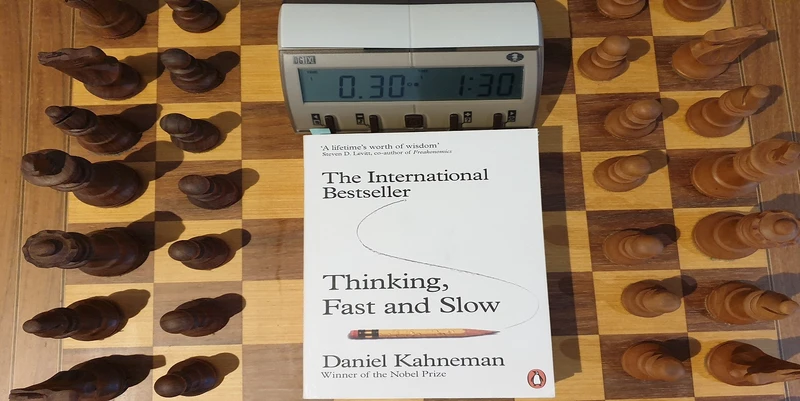
I wish I had today’s tools when I started chess, but looking back, the lack of online chess let me master the basics by playing lots of rapid and classical over-the-board in my first five years.
When you aren’t hanging pieces in every game, blitz is a good way to train your feel for the game. Just play it intentionally so you’re not just playing it mindlessly.
Lesson 17: Understand, don’t memorise
With opening courses being so popular these days, many beginners put hours into 20-move lines they’ll never see. I didn’t have any opening courses on my way to IM. I learned by playing a lot, then adding my own notes. That builds confidence and feel, not just memory.
Start simple: one first move with White, and one answer to 1.e4 and one approach for the rest with Black. Have a Lichess study for each opening, and add your own moves and comments every week. Be curious, not blind: don’t just copy lines without understanding the moves.
Lesson 18: Think before the engine.
Seeing Stockfish’s moves makes you feel smart. But if you look at them immediately, you’re not training your brain. After a loss, don’t turn the engine on right away. Make a note of where you think you made a mistake, and what you missed. Then check.
The core of improvement hasn’t changed since before engines became available everywhere. I became an IM without using engines. If you’re using them every day, go a whole week without using one from today, and see what you notice.
Lesson 19: Train your intuition.
Sometimes you see a position for the first time and good moves just jump out at you. That’s your gut, or intuition. It feels like a superpower, but it isn’t magic. It’s all the patterns you’ve stored: from games you’ve played, classics you’ve played over and structures you’ve studied, coming out as a feeling.
First step: play through lots of quality games, even in openings you don’t play, to develop it. Second step: notice what your intuition tells you, then take the time to verify it. Notice, review, rinse and repeat and your instincts get even sharper.
Lesson 20: Ask for help.
Nobody climbs the mountain of chess alone all the way. When you’re stuck on how to think about a position or how to train, ask someone who’s been where you want to be. It saves months of trying to figure it out yourself.
- Ask your opponent for one comment when you lose to them
- Ask a stronger player what they’d do about the issue you have
- Ask someone for a training game.
Be brief, specific and respectful. The worst they’ll say is no.
As the Japanese proverb goes: asking is embarrassing for one moment, not asking is embarrassing for one lifetime.
Lesson 21: Play the move you believe in.
In chess, we fear two things: losing and making a mistake. Here’s the truth after 25 years: you can’t avoid either. What raises your ceiling is the confidence to jump into the unknown. When you try something and it fails, you learn. When you choose not to jump, you don’t.
Each time you stay still, it gets even harder to play the move you actually believe in. I’ve chickened out of 50/50 decisions even when I wanted to play the move, and still remember how I felt after those games.
Next time you’re hesitating, ask yourself: if you weren’t scared, what would you do?
Lesson 22: Don’t play it safe.
When things are going well, it’s easy to lose your drive. I hit a FIDE rating of 2460 and started protecting my rating with the way I play. I stopped playing the dynamic chess that got me there, and slid back down to 2350 over the next few years. Safe felt smart, but it wasn’t. I traded growth for comfort.
The biggest risk you can take is actually not taking any risks.
Many days in your chess journey are going to be hard. But at the end of it, you won’t regret playing that 50/50 move, pushing for the win and losing, asking someone to train with you, or traveling to that big tournament. Back yourself even when you don’t feel ready.
Lesson 23: Love chess, don’t worship it
The deeper you get into chess, the easier it is to tie your results to your self-worth. A win feels like you’re a good person, a loss feels like you’re not. Zoom out, and remind yourself that it’s a game you’re lucky to be able to enjoy. Love chess, but don’t let it define you.
It’s ok to take a break from chess, and even find another hobby. When you come back, you’ll often discover your joy and motivation for playing again.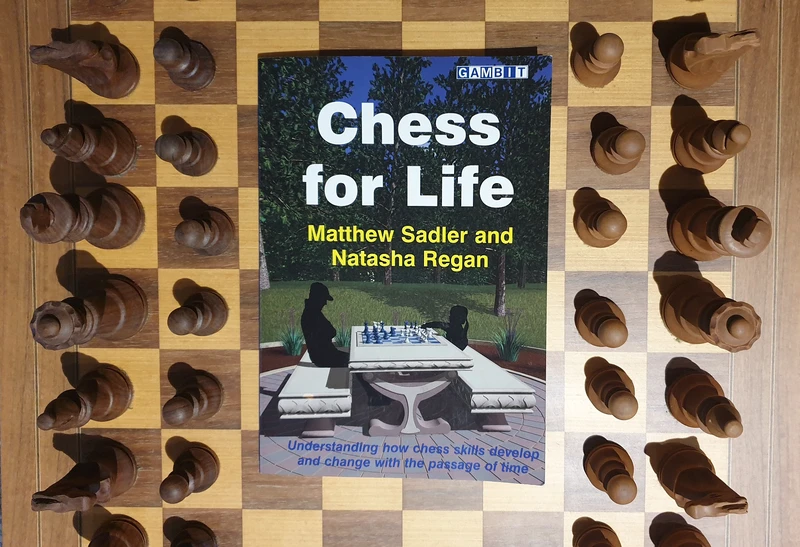
Lesson 24: Create, don’t just compete
You might only be a player now, but you can also teach, make videos, stream, write, help your local club or organise events. We’re all good at and enjoy different things. Even if it’s just sharing one thing you learnt, you never know who it might help.
If playing feels stressful, another outlet can give you that balance and keep your love for the game alive.
It’s never been easier to start something online. Pick one thing and just try it for 30 days.
Lesson 25: You’re more than your moves
Stronger players get more respect. But what matters more is who someone is away from the board. I’ve seen grandmasters do and say terrible things. They’re brilliant at chess but flawed people, like you and me.
So remember to separate the player from the person, in others and in yourself. You are more than the moves you play.
But chess lets us live many different lives inside this one.
Those were my 25 lessons from 25 years.
If you found this post helpful, please share it with another chessplayer.
I’d love to hear which lesson resonated with you, and the lessons you’ve learnt over your journey on the 64 squares.
You may also like
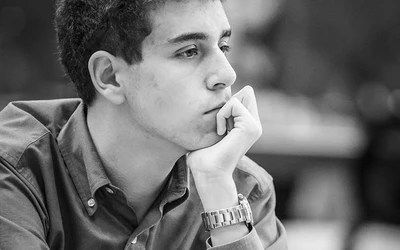 Vlad_G92
Vlad_G92Obituary: GM Daniel Naroditsky (1995-2025)
Daniel Naroditsky passed away at the age of 29 in Charlotte, NC, where he resided since 2020.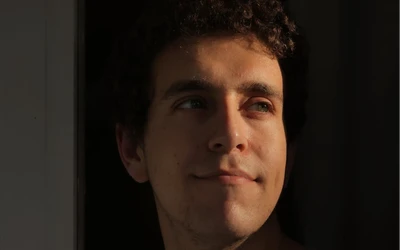 RuyLopez1000
RuyLopez1000Daniel Naroditsky: The Legend
Remembering one of the icons of the modern era.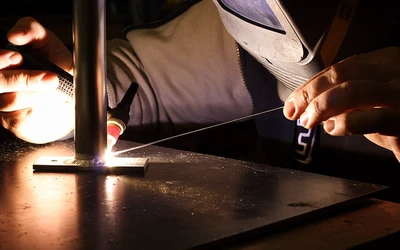 thibault
thibaultHow I started building Lichess
I get this question sometimes. How did you decide to make a chess server? The truth is, I didn't. IM datajunkie
IM datajunkie#33: My Most Memorable Novelty
The joy of charting unexplored territory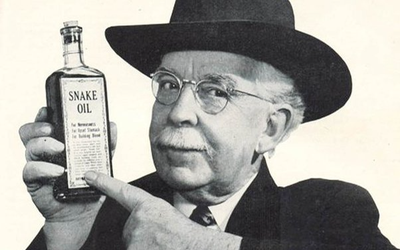 CM HGabor
CM HGaborHow titled players lie to you
This post is a word of warning for the average club player. As the chess world is becoming increasin… IM datajunkie
IM datajunkie